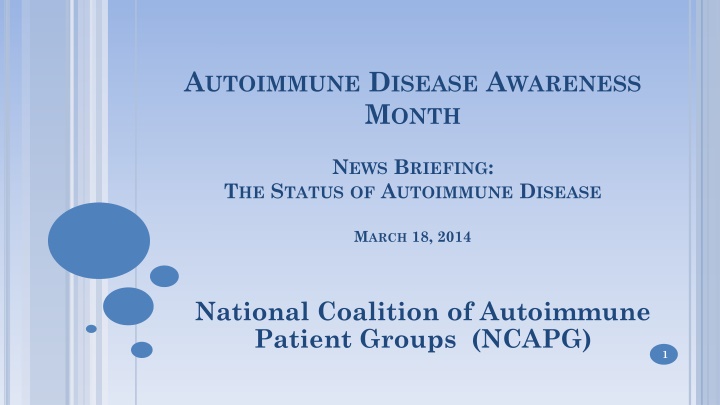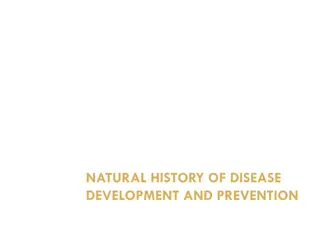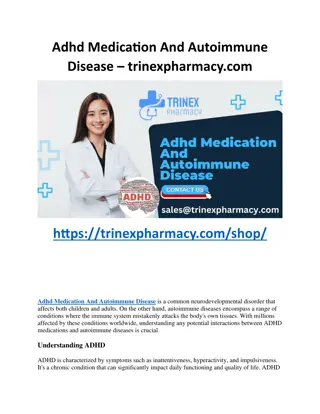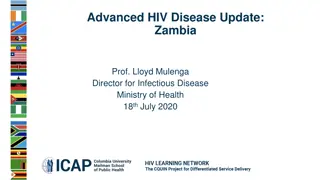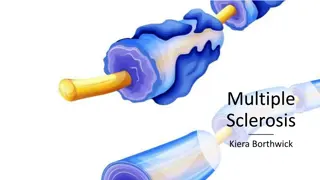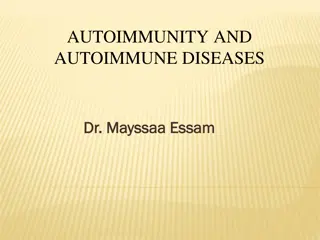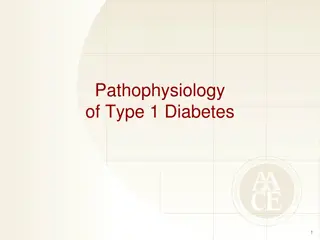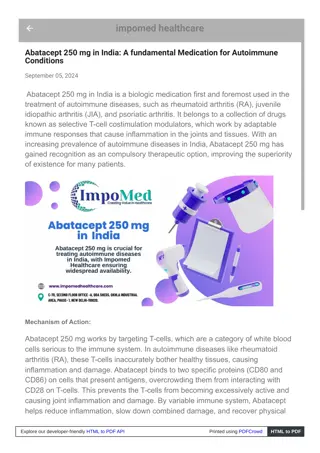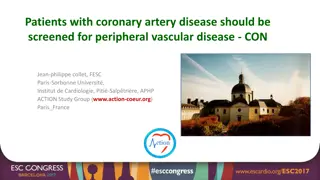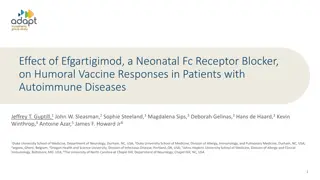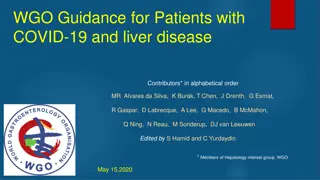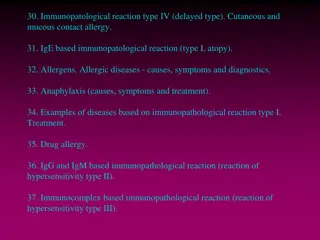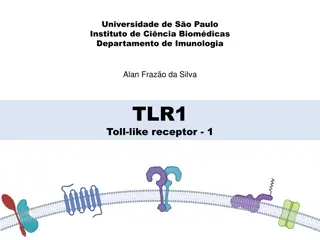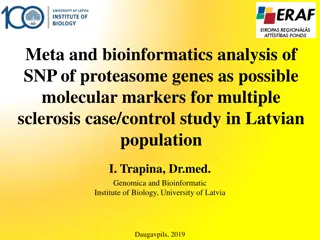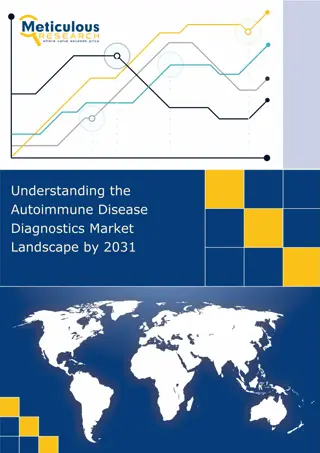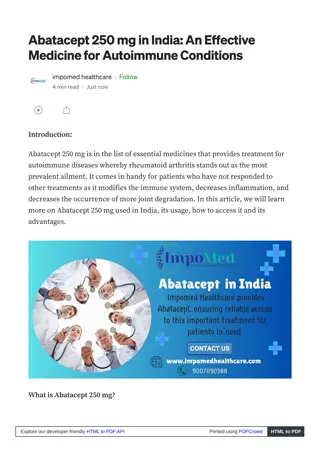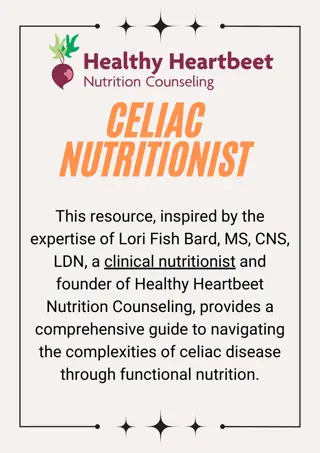Update on Autoimmune Disease Awareness
National Coalition of Autoimmune Patient Groups (NCAPG) held a briefing on the status of autoimmune diseases, discussing key topics like physician education, patient registry, and unmet needs. The mission of NCAPG is to advocate for autoimmune disease patients and promote education, awareness, and research. The organization includes various members dedicated to supporting individuals with autoimmune conditions. March is recognized as Autoimmune Disease Awareness Month, shedding light on the challenges faced by patients and the importance of healthcare access.
Download Presentation

Please find below an Image/Link to download the presentation.
The content on the website is provided AS IS for your information and personal use only. It may not be sold, licensed, or shared on other websites without obtaining consent from the author.If you encounter any issues during the download, it is possible that the publisher has removed the file from their server.
You are allowed to download the files provided on this website for personal or commercial use, subject to the condition that they are used lawfully. All files are the property of their respective owners.
The content on the website is provided AS IS for your information and personal use only. It may not be sold, licensed, or shared on other websites without obtaining consent from the author.
E N D
Presentation Transcript
AUTOIMMUNE DISEASE AWARENESS MONTH NEWS BRIEFING: THE STATUS OF AUTOIMMUNE DISEASE MARCH 18, 2014 National Coalition of Autoimmune Patient Groups (NCAPG) 1
AGENDA Bob Goldberg NCAPG, The National Coalition of Autoimmune Patient Groups ADAM, Autoimmune Disease Awareness Month Virginia Ladd What are Autoimmune Diseases? Stephanie Hales The NCAPG Accountable Care Act Survey Results Stanley Finger The need for Physician Education Aaron Abend The Autoimmune Disease Registry 2
NATIONAL COALITIONOF AUTOIMMUNE PATIENT GROUPS (NCAPG) 3
NATIONAL COALITIONOF AUTOIMMUNE PATIENT GROUPS (NCAPG) Mission Statement To consolidate the voice of autoimmune disease patients and to promote increased education, awareness, and research into all aspects of autoimmune diseases through a collaborative approach. 4
NCAPG MEMBERS American Autoimmune Related Diseases Association American Beh et's Disease Association American Vitiligo Research Foundation APS Foundation of America Arthritis Foundation Celiac Disease Foundation Celiac Sprue Association Coalition for Pulmonary Fibrosis Crohn's and Colitis Foundation of America Dysatonomia International Endometriosis Association Gluten Intolerance Group Graves Disease Foundation International Foundation for Autoimmune Arthritis International Pemphigus & Pemphigoid Foundation Lupus Foundation of America 5
NCAPG MEMBERS Lupus Foundation of Mid and Northern New York Myasthenia Gravis Foundation of America National Adrenal Diseases Foundation National Alopecia Areata Foundation National Kidney Foundation National Multiple Sclerosis Society National Psoriasis Foundation National Sleep Foundation P.A.N.D.A.S. Network.org Platelet Disorder Support Association Scleroderma Foundation Sj gren's Syndrome Foundation The Myositis Association Transverse Myelitis Association U.S. Pain Foundation Vasculitis Foundation Vitiligo Support International 6
MARCHIS AUTOIMMUNE DISEASE AWARENESS MONTH Unmet needs impacting on autoimmune patients Affordable Care Act (ACA) Delayed diagnosis Physician education Awareness No multiple specialty center of excellence No autoimmune disease registry 7
AUTOIMMUNEDISEASESARETHERESULT OFAMISDIRECTEDIMMUNESYSTEMTHAT CAUSESONE SOWNIMMUNESYSTEMTO ATTACKTHESELF 10
AUTOIMMUNITYATA GLANCE Over 100 diseases Affecting 50 million Americans Costing over $120 billion annually 250,000 new diagnoses each year A major cause of death in women Women 75% Men 25% 11
THANKYOU! 14
ACA SURVEY National Coalition of Autoimmune Patient Groups (NCAPG) 15
FRAMING THOUGHTS Overview of this survey and why NCAPG conducted it The power and importance of advocacy 16
AGE & SEXOF SURVEY RESPONDENTS REFLECTSTHEDISPROPORTIONATEIMPACTOFAUTOIMMUNITYON WOMEN 17 or younger 3% 1% 18-20 87% Female 9% 21-29 17% 30-39 21% 40-49 13% Male 32% 50-59 18% 60 or older 17 0% 5% 10% 15% 20% 25% 30% 35% 0% 20% 40% 60% 80% 100%
WHATCONDITIONSWEREYOUDIAGNOSEDWITH? Series 1 Disease Addison's Disease Hashimoto's disease Rheumatoid arthritis Crohn's disease Fibromyalgia Sjogren's Disease Lupus (SLE) Graves' disease Ulcerative Colitis Autoimmune thyroid disease # Respondents 97 32 23 22 19 19 18 12 11 Addison's Disease 20% Hashimoto's disease 7% Rheumatoid arthritis 5% Crohn's disease 5% Fibromyalgia 4% Sjogren's Disease 4% Lupus (SLE) 4% Graves' disease Series 1 2% Ulcerative Colitis 2% Autoimmune thyroid 2% 9 Other AD 20% No Response 17% Other AD No Response Non AD 95 81 43 18 Non AD 9% 0% 5% 10% 15% 20% 25%
WEREYOUINSUREDPRIORTOTHE ACA? 90% Yes 10% No 19 0% 10% 20% 30% 40% 50% 60% 70% 80% 90% 100%
IFYOUWEREUNINSUREDPRIORTOTHE ACA, WASITDUE TOHAVINGAPREEXISTINGCONDITIONORBEINGUNABLETO AFFORDAPREMIUM? Uninsured due to cost 6% Uninsured due to existing condition 5% Insured prior to the ACA 88% 20 0% 10% 20% 30% 40% 50% 60% 70% 80% 90% 100%
IFYOUWEREPREVIOUSLYUNINSURED, WEREYOU ABLETOENROLLINTHE ACA? 6% Yes No because I did not qualify for a subsidy 5% No because I could not afford the premium 3% 86% NR 21 0% 10% 20% 30% 40% 50% 60% 70% 80% 90% 100%
WHENTHE ACA BECAMEEFFECTIVE, DIDYOUHAVE TOSELECTANEWPLAN? 26% Yes 62% No 12% NR 22 0% 10% 20% 30% 40% 50% 60% 70%
HASYOURPREMIUMINCREASED? 42% Yes 58% No 23 0% 10% 20% 30% 40% 50% 60% 70%
HASYOURDEDUCTIBLEINCREASED, DECREASEDOR REMAINEDABOUTTHESAMEAFTERENROLLINGINTHE ACA? 34% Increased 8% Decreased 40% Remained about the same 18% NR 24 0% 5% 10% 15% 20% 25% 30% 35% 40% 45%
HASYOURCOVERAGEINCREASED, DECREASEDOR REMAINEDTHESAMEINTHESERVICESIMPORTANTTOYOU? 23% Increased 36% Decreased Remained about the same 33% 8% NR 25 0% 5% 10% 15% 20% 25% 30% 35% 40%
HASTHEPRICEOFYOURPRESCRIPTIONS INCREASED, DECREASEDORREMAINEDTHESAME? 38% Increased 10% Decreased 43% Remained the same 10% NR 26 0% 5% 10% 15% 20% 25% 30% 35% 40% 45%
WEREYOUABLETOKEEPTHESAMEPRESCRIPTIONS THATYOUHADPRIORTOTHE ACA? 69% Yes 17% No 14% NR 27 0% 10% 20% 30% 40% 50% 60% 70% 80%
HAVEYOUSUFFEREDADVERSEREACTIONSDUETO DRUGCHANGES? 14% Yes 86% No 28 0% 10% 20% 30% 40% 50% 60% 70% 80% 90% 100%
WEREYOUABLETOKEEPTHESAMESPECIALISTS THROUGHTHE ACA? 66% Yes 14% No 20% NR 29 0% 10% 20% 30% 40% 50% 60% 70%
DOYOUHAVECONCERNSABOUTTHEACCESSIBILITY OFSPECIALISTSUNDERTHE ACA? 45% Yes 33% No 22% NR 30 0% 5% 10% 15% 20% 25% 30% 35% 40% 45% 50%
WEREYOUBETTEROFFBEFOREORAFTERTHE ACA? 40% Before 16% After 44% No Change 31 0% 5% 10% 15% 20% 25% 30% 35% 40% 45% 50%
RESPONSES REFLECT SOME IMPROVEMENTS, BUTA STRONG NEEDFOR CONTINUED ADVOCACY [M]y employer had to change or insurance provider. Now I pay higher premiums, higher copays, and three of my specialists are no longer on our new plan. I believe the ACA is a step in the right direction. Improvements are necessary, for instance out of network options. I love ACA. I am now getting the help and medications I needed, plus test confirms ... not [rheumatoid arthritis] as first suspected ... [mixed connective tissue disease]. I was adversely affected when my former employer switched to a high deductible [health plan] when anticipating the premium jump ACA would cause. 32
THANKYOU! 33
AARDA AUTOIMMUNE DISEASE DIAGNOSIS SURVEYS 34
AD DIAGNOSIS TAKESAN INORDINATE AMOUNTOF TIMEAND PERSEVERANCE Survey Issues Years to Diagnosis No. Physicians Seen Labeled Chronic Complainer 1996 5 6 64% 2001 4 4 45% 2006 4 4 45% 2013 4 5 51% 35
YEARSTO DIAGNOSIS 3.5 Total 4.3 Sjogren's Disease 2.7 Rheumatoid arthritis 3.2 Multiple sclerosis 3.9 Lupus (SLE) 3.5 Crohn's disease 36 - 0.5 1.0 1.5 2.0 2.5 3.0 3.5 4.0 4.5 5.0
NUMBEROF DOCTORS SEENTOGETA DIAGNOSIS 4.5 All 5 diseases 6.5 Sjogren's Disease 3.8 Rheumatoid arthritis 3.8 Multiple sclerosis 4.8 Lupus (SLE) 3.9 Crohn's disease 37 - 1.0 2.0 3.0 4.0 5.0 6.0 7.0
PERCENTTOLDTHEIRDISEASEWASIMAGINEDOR THEYWEREOVERLYCONCERNED 51% All 5 diseases 59% Sjogren's Disease 44% Rheumatoid arthritis 48% Multiple sclerosis 52% Lupus (SLE) 53% Crohn's disease 38 0% 10% 20% 30% 40% 50% 60% 70%
Why so Long and Difficult to Get a Correct Diagnosis? Physician Education was identified as a contributing factor. 39
AARDA CONDUCTEDA SURVEYOF PHYSICIANS AARDA participated in an educational workshop attended by 130 family physicians. Participants were asked to participate in a survey on the extent of their knowledge of autoimmune diseases. The survey results prompted a larger ongoing study. 40
INMEDICALSCHOOL, HOWMUCHTRAININGIN AUTOIMMUNEDISEASESDIDYOURECEIVE? 22.2% 13% 27.8% 18.5% 18.5% None 1 Lecture 2 Lectures 41 3-5 Lectures 5+ Lectures
WOULDYOUAGREETHATYOURECEIVEDENOUGH TRAININGTODIAGNOSEANDTREATAUTOIMMUNE DISEASE? 4.6% 29.2% 7.7% 7.7% 6.2% 12.3% 32.3% Strongly Agree Somewhat Disagree Agree Disagree Somewhat Agree Strongly Disagree Neutral 42
WHATISYOURLEVELOFCOMFORTINDIAGNOSING AUTOIMMUNEDISEASE? 13.5% 11.5% 25% 50% Stressed Comfortable Uncomfortable Very Comfortable Average Comfort 43
STRATEGIC GOAL AARDA is conducting a larger study to determine: Level of physician education Physicians preferred way of continuing education With the goal of developing A syllabus for medical school A Continuing Medical Education program for autoimmune diseases 44
PUBLIC AWARENESSALSOCONTRIBUTESTOTHE PROBLEM Awareness Study GFK randomly surveyed 1000 Americans Study is conducted every five to seven Years to measure progress 45
PUBLIC AWARENESSOF AUTOIMMUNE DISEASES 1992 2001 2008 2013 Correctly name an autoimmune disease Thought AIDS was an autoimmune disease 5% 6% 13% 15% 93% 38% 32% 21% 46
NEEDFORA MULTIPLE SPECIALIST CENTEROF EXCELLENCE FOR DIAGNOSINGAND TREATING AUTOIMMUNE DISEASES A patient Survey Would you travel to a center to get diagnosed? Yes - 75% No - 25% 47
TRAVELTOA CENTERFOR: (MAYSELECTMORETHAN ONE) Second opinion 69.7% Specialized treatment 86.5% Coordinated care 76.9% 48
IMPROVED AUTOIMMUNE DISEASE DIAGNOSIS REQUIRES Increased Physician education Increased Public Awareness Autoimmune Disease Multi-Specialist Center 49
RETURNON INVESTMENT Fewer chronic disabilities Less human suffering Dramatic reduction in AD healthcare costs 50
